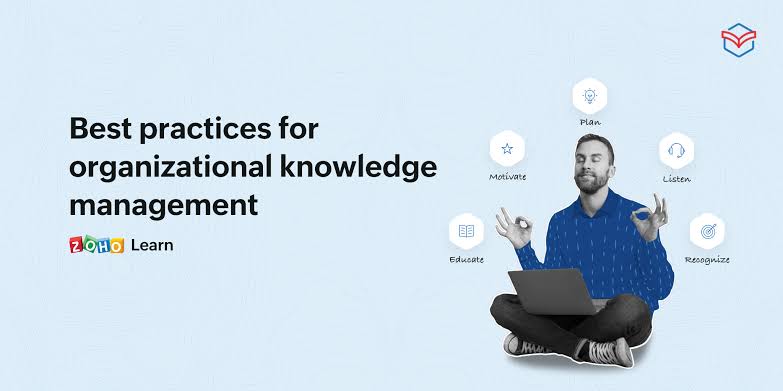Knowledge management is a vital discipline that can make or break an organization in today’s information-driven business environment. It encompasses the processes and strategies through which a company identifies, captures, shares, and effectively uses knowledge to enhance productivity and innovation. Implementing a robust knowledge management strategy can lead to a competitive edge and significantly improve decision-making processes. Proper management of knowledge within an organization requires a thoughtful approach that aligns with the company’s objectives and workforce dynamics. Below, we delve into essential tips for effectively implementing a knowledge management strategy for your organization.
Understanding the Fundamentals of Knowledge Management
Alt text: Team members discussing the best ways to implement organizational knowledge management in their company project.
Organizational knowledge management revolves around harnessing and disseminating a company’s collective expertise. It involves understanding two key types of knowledge: tacit, which is personal and intangible, and explicit, which can be easily articulated and shared.
To effectively manage organizational knowledge, a system that promotes collaboration and communication among team members is crucial. This includes both technical infrastructure for storing knowledge and human-centered practices that encourage sharing and innovation. These systems should remain adaptable and scalable to meet evolving organizational needs.
Strategies such as creating databases for explicit knowledge and fostering communities of practice for tacit knowledge are essential for leveraging organizational knowledge. Incorporating both formal and informal approaches ensures that knowledge flows freely within the organization, creating opportunities for growth and learning.
Recognizing that knowledge management is an ongoing process is vital. It requires a perpetual cycle of learning, sharing, and updating to keep organizational knowledge fresh and relevant.
Assessing Organizational Knowledge Needs
To ensure a successful knowledge management strategy, organizations must tailor their approach to their unique needs. This begins with assessing current knowledge assets and identifying any gaps through methods like interviews, surveys, and work pattern analysis.
Understanding the skills and expertise of the workforce is crucial. Identifying individuals with specialized knowledge can inform the creation of knowledge-sharing networks and mentorship opportunities. It’s also important to consider employees’ learning styles and preferences.
Evaluating existing technological tools is essential. Are they aligned with the organization’s knowledge requirements and facilitating efficient collaboration and knowledge retrieval?
Once the organizational knowledge needs are assessed, management can set clear, SMART objectives for the strategy to guide the organization effectively toward its goals.
Selecting the Right Knowledge Management Tools and Platforms
Selecting the right tools is crucial for effective knowledge management. These tools should facilitate capturing both explicit and tacit knowledge, promoting collaboration and social interactions.
Essential features of knowledge management software include categorization, searchability, and user-friendly interfaces to encourage adoption by all team members. Integration with existing systems and mobile accessibility further enhance usability.
Cloud platforms have transformed knowledge management, offering scalable, secure, and collaborative solutions. They enable real-time document sharing and advanced analytics for insights into knowledge usage.
However, tool selection is just the beginning. Processes and protocols are essential for governing knowledge capture, storage, and sharing. This includes guidelines for contributions, peer review, and quality assurance to maintain the reliability of knowledge.
Fostering a Knowledge-Sharing Culture
Alt text: A group of diverse people sharing content from one of their laptops.
Establishing a culture that prioritizes and promotes knowledge sharing is essential for maximizing the effectiveness of sophisticated tools and strategies. Leadership sets the tone by actively engaging in knowledge sharing, signaling its importance to the organization.
Recognition and reward systems incentivize the exchange of ideas, while collaborative projects and cross-departmental initiatives integrate knowledge sharing into daily operations. Training and mentorship programs equip employees with the necessary skills for effective communication and collaboration.
Addressing barriers such as organizational silos and lack of trust among employees is crucial. Developing strategies to overcome these hurdles is imperative for a successful knowledge management system.
Measuring the Success of Your Knowledge Management Strategy
After implementing a knowledge management strategy, monitoring its effectiveness is crucial. This involves establishing KPIs that align with organizational objectives, such as tracking the frequency of knowledge contributions and usage rates of KM tools.
Feedback from employees offers valuable insights into the strategy’s reception and areas for improvement. Analyzing the ROI through increased productivity and reduced training costs provides tangible metrics. Regular reviews and adjustments are necessary to ensure the strategy remains relevant and impactful amidst evolving business needs.
Altogether, implementing a successful knowledge management strategy necessitates careful planning, appropriate tools, and a supportive culture. Through establishing effective knowledge-sharing practices and consistently refining them, organizations can leverage their collective intelligence, maintaining a competitive edge in their industry.
